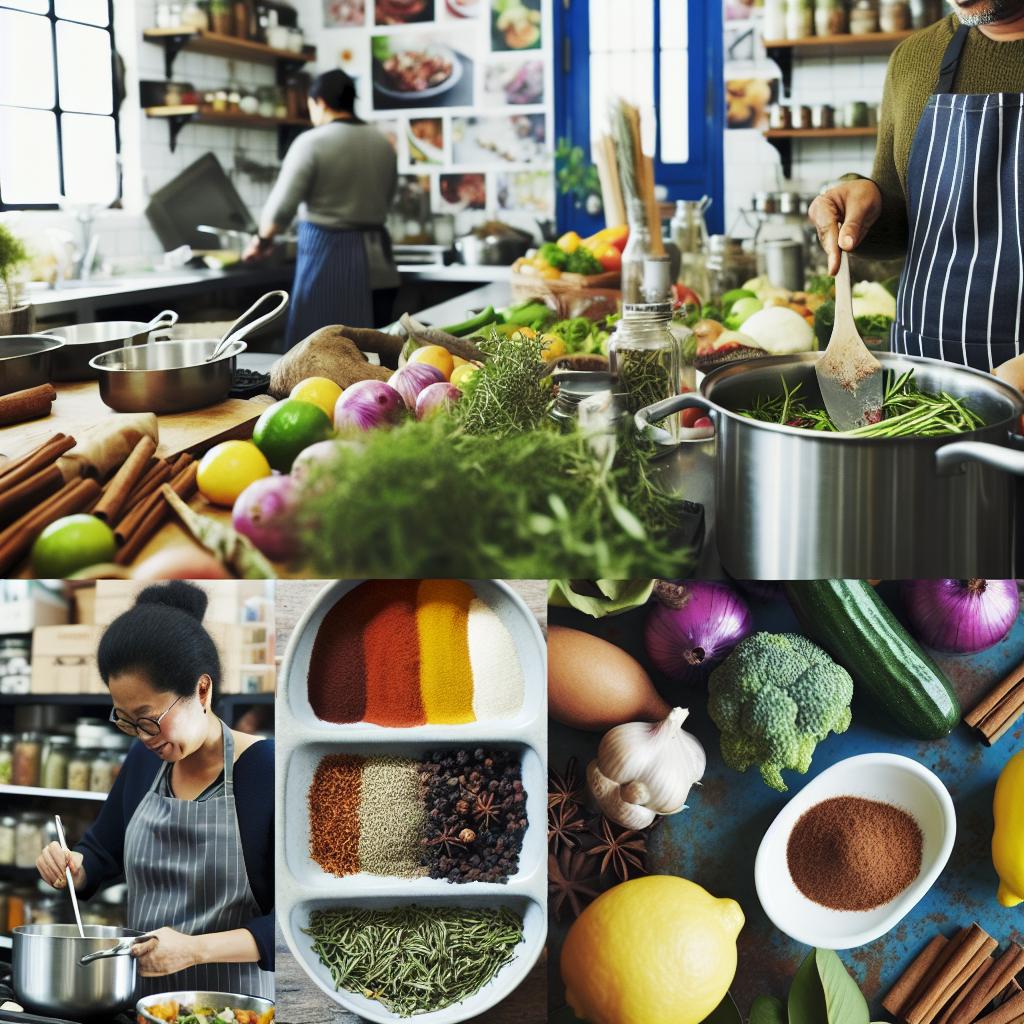
Unleash your culinary creativity and transform your kitchen into a haven of homemade delights
Exploring the Basics of Home Cooking
Diving into the world of home cooking can be both exciting and daunting for beginners. It's about understanding the fundamental techniques, from chopping and sautéing to roasting and grilling. Grasping these basic skills is the first step towards culinary self-sufficiency, allowing one to create simple yet satisfying meals with confidence.
In addition to technique, exploring the basics of home cooking involves an appreciation for ingredients. Knowing how to select fresh produce, quality meats, and the right spices can elevate any dish. It's also about meal planning and kitchen organization—skills that save time, reduce waste, and make the cooking process enjoyable.
Mastering the Art of Meal Prepping
Meal prepping is a skill that serves as a cornerstone for a healthy and efficient lifestyle. It's the strategic art of preparing and cooking meals in advance, which can lead to better dietary choices and save precious time during busy weeks. Mastering meal prepping involves batch cooking, portion control, and learning how to store meals to maximize freshness and flavor.
Whether it's preparing a week's worth of lunches or pre-cutting vegetables for quick dinner assembly, meal prepping can be customized to fit any schedule or dietary preference. It requires an initial investment of time and effort, but the payoff is substantial—more time to enjoy life outside the kitchen and less temptation to indulge in less nutritious convenience foods.
Discovering the Joy of Fermenting at Home
Fermentation is an ancient culinary practice that is enjoying a modern resurgence. It's the process of converting carbohydrates to alcohol or organic acids using microorganisms—yeasts or bacteria—under anaerobic conditions. Fermenting at home can be a joyful and rewarding experience, yielding products like sauerkraut, kimchi, yogurt, and kombucha.
The benefits of fermentation are manifold, including enhanced flavors, preserved foods, and the creation of beneficial enzymes, b-vitamins, omega-3 fatty acids, and various strains of probiotics. It's a fascinating world that combines the art of patience with the science of microbiology, resulting in delicious and healthful foods that can be enjoyed year-round.
Crafting Delicious and Nutritious Snacks
In a world where processed snacks are readily available, there's something incredibly satisfying about crafting your own delicious and nutritious alternatives. Homemade snacks like energy balls, granola bars, and fruit leathers not only provide healthier options but also allow for customization to personal taste preferences.
Creating snacks at home can also be a fun way to involve family, especially children, in the kitchen. It teaches valuable skills and instills an appreciation for the ingredients that go into our food. Plus, homemade snacks often taste better because they are made with love and care.
Embracing the World of Homemade Breads
The act of baking bread at home is a therapeutic and deeply satisfying endeavor. There's something magical about mixing simple ingredients like flour, water, yeast, and salt and watching them transform into a warm, crusty loaf. Embracing the world of homemade breads opens up a realm of possibilities, from rustic sourdoughs to sweet brioche.
Homemade bread not only tastes better, but it also avoids the preservatives and additives found in many store-bought loaves. The process of kneading and shaping dough can also be a meditative and stress-relieving activity, making it a nourishing practice for both body and mind.


.jpg)
.jpg)


.jpg)




.png)





0 Comments